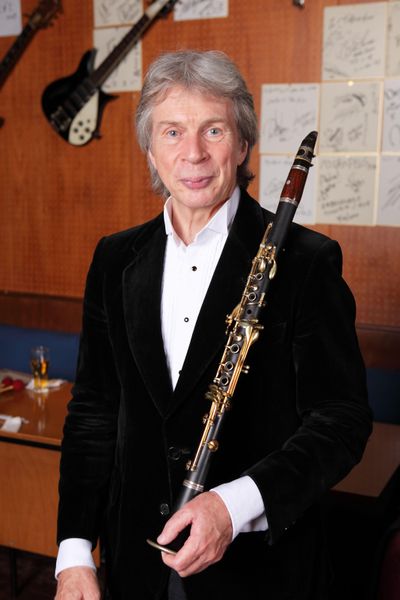Clarinetist Richard Stoltzman brings personal connections to GU performance

Richard Stoltzman is generally considered one of the most accomplished clarinetists working today, and the Grammy-winning musician will appear with the Gonzaga Symphony Orchestra on Monday. Under the direction of conductor Kevin Hekmatpanah, Stoltzman will be performing Aaron Copland’s Clarinet Concerto, Benny Goodman’s signature tune “Goodbye” and a medley of songs from the musical “West Side Story.”
In anticipation of his upcoming Spokane performance, we spoke with Stoltzman about his deeply personal connections with his selected compositions, his first encounter with a clarinet and how classical music overcomes language barriers.
The Spokesman-Review: Looking at your recent touring schedule, it seems like you’re traveling all over the place.
Stoltzman: I try to go where people want to hear me play, and also where people love classical music as well as jazz. Classical music really bonds people. … There are musicians joining together to play music wherever I go, so I have a great opportunity to come to those places and join with them in making music for their people. I think that proves the authenticity of classical music and what it does for audiences everywhere, not just in Europe or in America.
SR: What specifically drew you to the clarinet?
Stoltzman: When my dad was in school, he wanted to be in a big band. He ended up doing something completely different, but he kept his clarinet. It was underneath my mom and dad’s bed and I found it. I was sort of fooling around with it, pretending it was some kind of toy. My parents didn’t punish me, but they said, ‘You’ve got to wait a few years.’ So I started playing duets with my dad on the clarinet, then having a teacher, then (playing in) elementary school and junior high and high school. … Lots of kids played in band. They just didn’t expect they were going to be classical musicians.
SR: Was there a specific moment when you realized you wanted to be a professional musician?
Stoltzman: Not exactly your words, but I do remember when I was in fifth grade, I was playing for the PTA. … I played a song called “Silver Threads Among the Gold,” and I had no idea what that meant. And as I was putting my instrument back in the case in the hallway, this lady came over to me to thank me, and she was crying. It scared me a little bit, and I said, “Thank you,” and she went away. And it stayed in my mind for a long time. Then somebody asked me (the same question) many years afterward, and I realized that was it. I hadn’t realized until then that music had a power to move people. … I’m glad my parents didn’t take the clarinet away when I found it.
SR: We probably wouldn’t be having this conversation if that were the case.
Stoltzman: No! I’d probably be scarred for life or something. I’m so glad I’m still able to bring music to people.
SR: Do you have a personal connection with any of the pieces you’ll be performing with the Gonzaga symphony?
Stoltzman: I remember my first recital at Carnegie Hall, and Benny Goodman came to the concert. … I was very lucky to meet Benny Goodman. He invited me over to his penthouse apartment in New York and we played duets together. … Years later, after I played that recital with Benny there, Copland celebrated his 85th or 90th birthday in Carnegie Hall, and I played the Clarinet Concerto for him. It was just an amazing kind of arc, to go from giving my first recital with Benny Goodman in the audience to playing the Copland concerto, which Benny Goodman commissioned and inspired, to the composer.
SR: Those are pretty deep connections.
Stoltzman: Yeah! It’s a small world, music. When you start talking to people, you realize we’re all connected by the miracles of sounds and rhythms. … Whenever I look out into the audience, I see people going into their own worlds. It’s a beautiful thing. They’re closing their eyes and they’re thinking about … well, who knows what they’re thinking about, just like I didn’t know what that lady was thinking about when I played “Silver Threads Among the Gold.” … I see people slow down. They’re not breathing so fast anymore, they’re not as anxious about stuff. They seem to be settling, and that’s the magic music has.